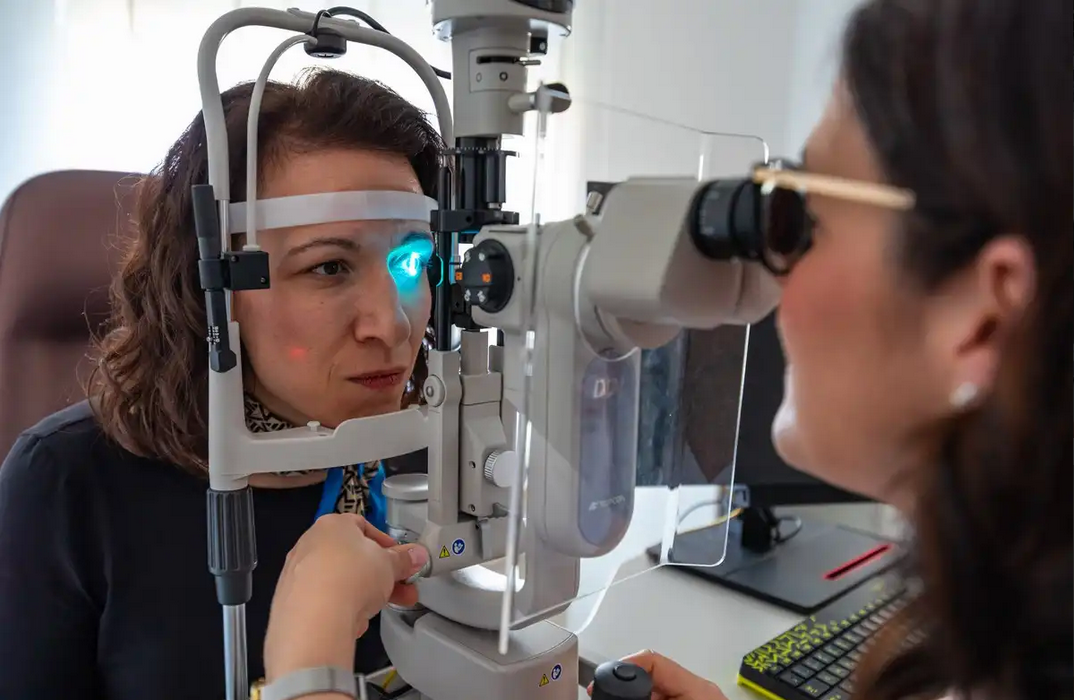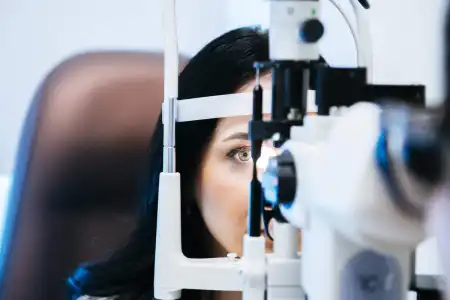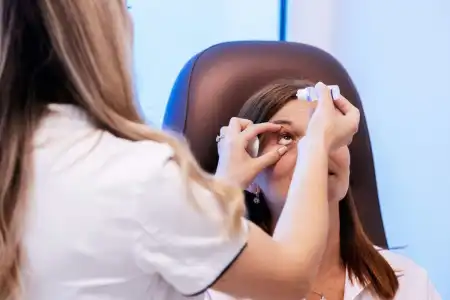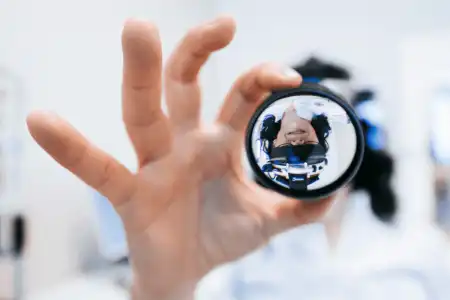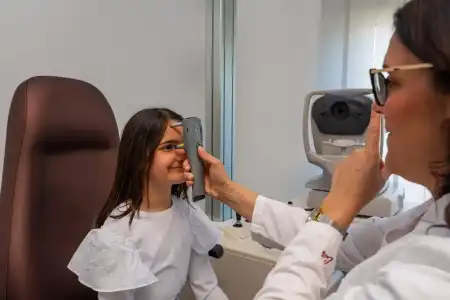In our first article, I explained how many serious eye diseases progress without symptoms until it's too late for simple interventions. The article also covers the various examinations and tests included in a comprehensive eye exam, as well as the importance of customizing the frequency of exams based on each individual's age and health condition.
As an ophthalmologist with extensive experience, I emphasize the importance of regular eye exams for maintaining eye health. Many of us neglect these exams, but they are crucial for the early detection and treatment of various eye diseases that can gradually impair vision.
Regular exams allow us to intervene in a timely manner, whether it involves simple corrections to vision or diagnosing more serious conditions such as glaucoma and macular degeneration.
In this article, we explore why eye exams are necessary and how regular check-ups can improve your overall eye health, prevent serious issues, and keep your vision sharp.
The key role of regular vision exams in preventing eye diseases
I witness daily the importance of regular vision exams in preserving eye health and preventing serious complications. Conditions like glaucoma, cataracts, macular degeneration, and diabetic retinopathy can develop silently, without visible symptoms until significant vision damage occurs. Regular exams are crucial as they enable early detection of these diseases, which is essential for successful treatment.
Timely diagnosis can significantly improve treatment outcomes. For example, early detection of glaucoma allows us to take steps that can slow or even stop the progression of the disease, preventing possible permanent vision damage. Similarly, early recognition of cataracts can lead to timely surgical intervention, which restores vision and improves the patient's quality of life.
Regular exams also play a vital role in monitoring existing conditions and their effective management, especially for individuals at high risk or with a genetic predisposition to certain eye diseases. Every visit to the ophthalmologist is an opportunity for a thorough evaluation of your vision and eye health, ensuring the best possible outcomes and long-term preservation of sight.
What does a vision exam include
As an ophthalmology specialist, I can confirm that a vision exam involves much more than basic testing of vision sharpness. It is a comprehensive process that includes a series of specific tests and procedures designed to thoroughly evaluate all aspects of your eye health. This thorough approach ensures that we not only identify existing problems but also anticipate potential future complications.
Vision sharpness testing is just the beginning; we check how your eyes respond to different distances and lighting conditions. Measuring intraocular pressure is crucial for detecting glaucoma, while an examination of the front segment of the eye helps identify issues with the cornea, iris, and lens.
Pupil dilation allows us a detailed examination of the retina and optic nerve, which is vital for detecting diseases such as macular degeneration and diabetic retinopathy. We also use visual field testing to assess peripheral vision, which is often the first area affected in conditions like glaucoma.
Each of these steps provides valuable information that helps us create an individualized treatment plan or preventive measures. We approach each patient with care, using the latest technology to provide the most accurate and effective results, ensuring optimal preservation of your vision.
Frequency of Exams by Age and Risk Factors
I often stress the importance of customizing the frequency of ophthalmological exams according to the individual needs of each patient, which vary depending on age, genetics, and overall health condition. Properly determining when and how often you should have an exam is crucial for maintaining your eye health and preventing potential diseases.
Children should have their first ophthalmological exam within the first year of life, and then as needed until school age, when it is recommended to have a regular exam before starting school and every two years thereafter to ensure that vision problems do not impact learning and development.
Adults without known risks or existing eye problems should have a vision exam every five years until the age of 40, and then every two to four years, depending on the advice of an ophthalmologist.
Individuals over 60 or those with risk factors such as diabetes, high blood pressure, a family history of eye diseases, or a personal history of eye problems, should visit an ophthalmologist at least once a year. These exams are crucial for early detection of conditions such as glaucoma, macular degeneration, and diabetic retinopathy, which are more common in older age.
The correct frequency of exams helps maintain your vision and allows for timely treatment of any problems discovered. Regular ophthalmological exams are not just a preventative measure; they are an integral part of maintaining your overall health.
Identifying Early Signs That Indicate the Need for an Exam
Recognizing early signs of vision problems is crucial for timely intervention and can significantly reduce the risk of permanent vision damage. I often encounter patients who were unaware of initial symptoms until the problem became more serious. Here are a few key signs to watch for:
- Blurred vision: If you notice that your vision has suddenly or gradually become blurred, this could be a sign of a refractive error, but also an indicator of more serious conditions such as cataracts or macular degeneration.
- Difficulty with night vision: Struggling to see in low light may indicate the onset of degenerative changes in the retina.
- Frequent headaches: If you experience frequent headaches that worsen with reading or other activities that require focusing, this may be a sign that your vision is not optimal.
- Double vision: The occurrence of double vision is one of the alarming symptoms that require an urgent ophthalmological exam.
- Sensitivity to light: Increased sensitivity to light can be a symptom of inflammatory processes within the eye.
Timely vision exams can help identify and address these issues before they cause more serious damage. Do not wait for symptoms to become unbearable. If you notice any of these signs, I advise scheduling an exam with an ophthalmologist. With advances in diagnostic technology, we are now able to diagnose and treat many problems much earlier than ever before, significantly improving the prognosis for maintaining eye health.
Conclusion
Regular vision exams are essential for everyone, not just those with vision problems or special risks. I emphasize that timely diagnosis and intervention can significantly improve the quality of life and treatment outcomes. Regardless of your age, regular ophthalmological exams should be an indispensable part of your health routine.
Do not let neglecting regular exams be the reason for permanent vision loss. These exams are not just a preventive measure; they are crucial for maintaining your vision at an optimal level and allowing you to fully enjoy the visual delights of the world around you. Proper eye care starts with timely and regular exams.

